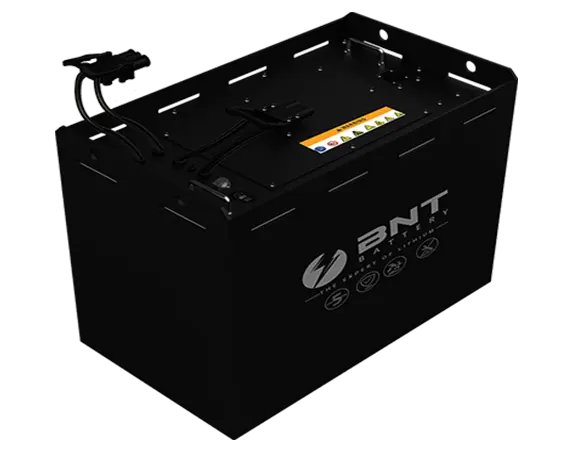Introduction
LiFePO4 batteries have emerged as a game-changer in the world of forklifts and material handling equipment. With their exceptional durability, long-lasting power, and eco-friendly nature, 36V LiFePO4 batteries are transforming the way businesses operate. In this article, we’ll explore the ins and outs of LiFePO4 forklift batteries, their advantages, applications, and much more.
Understanding LiFePO4 Batteries
What Are LiFePO4 Batteries?
LiFePO4, or Lithium Iron Phosphate, batteries are a type of rechargeable battery known for their high energy density and exceptional performance. These batteries are composed of lithium iron phosphate as the cathode material.
The Advantages of LiFePO4 Batteries
- Longevity: LiFePO4 batteries have a significantly longer lifespan compared to traditional lead-acid batteries, making them a cost-effective choice in the long run.
- High Energy Density: These batteries pack more power into a smaller space, allowing for compact and efficient battery designs.
- Eco-Friendly: LiFePO4 batteries are non-toxic and environmentally friendly, reducing the carbon footprint of forklift operations.
- Low Maintenance: They require minimal maintenance, eliminating the need for regular watering and equalization charges.
- Fast Charging: LiFePO4 batteries can be charged quickly, reducing downtime for forklifts.
LiFePO4 Forklift Batteries: A Perfect Match
The Forklift Industry’s Shift
The forklift industry is experiencing a significant shift towards LiFePO4 batteries due to their compelling advantages. Traditional lead-acid batteries are becoming obsolete for several reasons:
- Heavy and Bulky: Lead-acid batteries are heavy, which affects the forklift’s overall weight and performance.
- Short Lifespan: Lead-acid batteries need frequent replacement, resulting in higher operating costs.
- Environmental Concerns: The disposal of lead-acid batteries poses environmental challenges due to toxic materials.
- Downtime: Longer charging times and maintenance requirements lead to downtime, affecting productivity.
Applications of LiFePO4 Forklift Batteries
LiFePO4 forklift batteries find applications in various industries, including:
- Warehousing: Forklifts used in warehouses benefit from the efficient power and quick charging times of LiFePO4 batteries.
- Manufacturing: Manufacturers rely on forklifts for material handling, and LiFePO4 batteries keep their operations running smoothly.
- Construction: Construction sites often require robust forklifts, and LiFePO4 batteries provide the power needed for heavy lifting.
- Agriculture: Farms use forklifts for various tasks, and LiFePO4 batteries ensure reliability in challenging environments.
Maintaining LiFePO4 Forklift Batteries
Battery Care
To ensure the longevity and optimal performance of LiFePO4 forklift batteries, follow these maintenance tips:
- Regular Charging: Charge the battery when it reaches 30% to 40% capacity to avoid deep discharges.
- Temperature Control: Keep the battery at a moderate temperature range to prevent overheating or freezing.
- Cleaning: Maintain a clean battery and forklift to prevent dust and debris from affecting the battery.
- Inspection: Periodically inspect the battery for signs of wear, damage, or loose connections.
Conclusion
LiFePO4 forklift batteries are a powerful solution for businesses in need of efficient and sustainable energy storage. Their longevity, eco-friendliness, and low maintenance make them the ideal choice for a wide range of applications.
For businesses seeking a reliable power source for their forklifts, LiFePO4 batteries stand out as the future of material handling equipment.
FAQs
1. How long do LiFePO4 forklift batteries typically last?
LiFePO4 batteries have a longer lifespan compared to traditional lead-acid batteries, often exceeding five years with proper maintenance.
2. Can LiFePO4 batteries be retrofitted into existing forklifts?
Yes, LiFePO4 batteries are compatible with most forklift models, making them a viable option for retrofitting.
3. Are LiFePO4 batteries more expensive upfront?
While LiFePO4 batteries may have a higher initial cost, their long-term cost-effectiveness and reduced maintenance expenses make them a worthwhile investment.
4. How can I dispose of LiFePO4 batteries responsibly?
LiFePO4 batteries are environmentally friendly and can often be recycled. Many recycling centers accept them for proper disposal.
5. Can LiFePO4 batteries be used in extreme temperatures?
LiFePO4 batteries perform well in a wide temperature range, making them suitable for various applications, including cold storage facilities and hot manufacturing environments.













